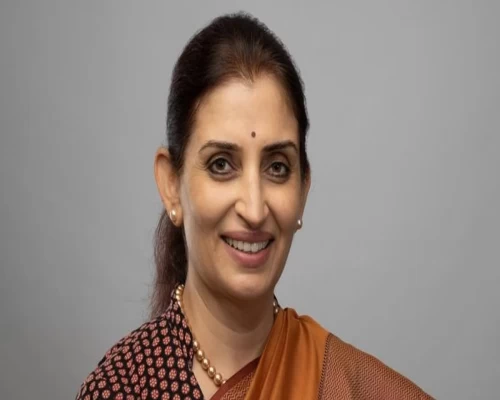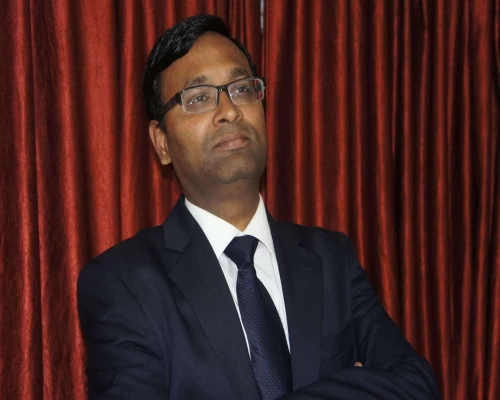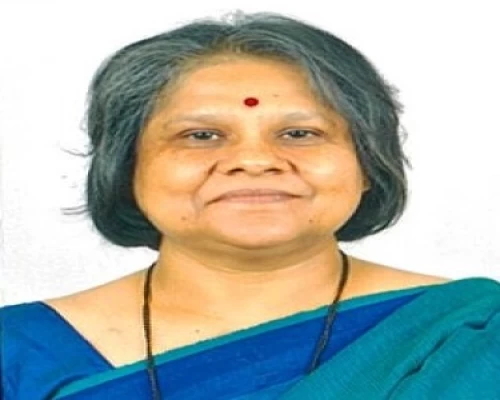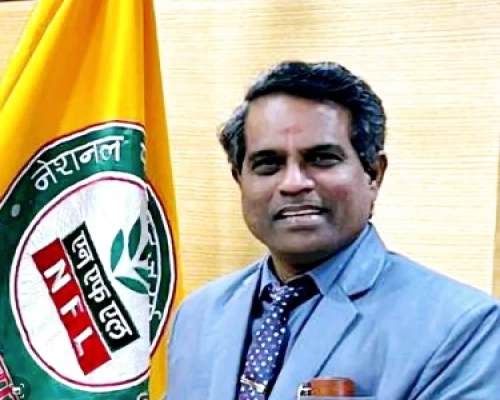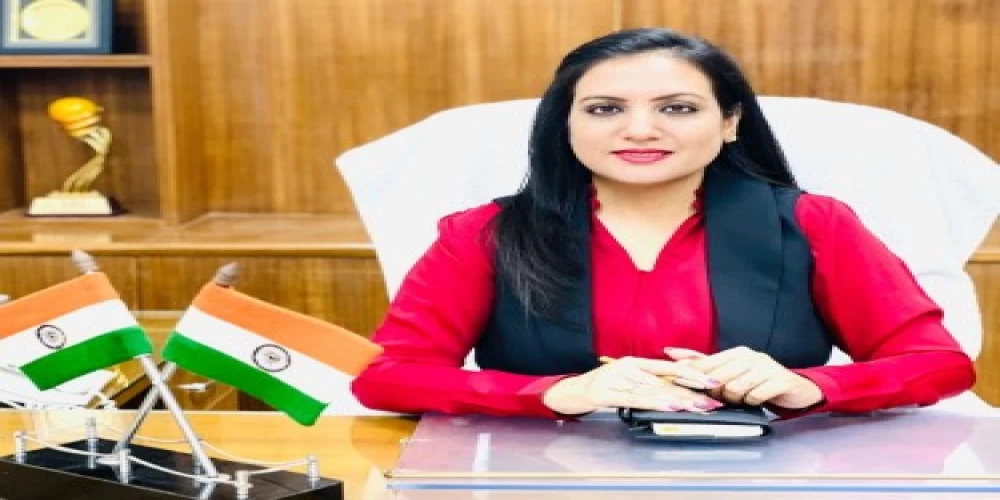
Clarity of thought leads to action and positive results. Common man likes action driven governance and the job of a bureaucrat becomes extremely enjoyable and satisfying when he or she is able to strike a balance between ideas and actions. Sonal Goel, an IAS officer of 2008 batch, is one such bureaucrat who feels strongly about women’s empowerment. She is of the view that a lot needs to be done for gender parity in the society. “Being a woman myself, I always want to do something for women empowerment. Even today in India, women have to face numerous challenges,” said Goel in an exclusive interview with Rajiv Ranjan Roy and Sweta Bharti of Bureaucrats India. She opens up about her tryst with India’s most coveted but challenging service and journey so far. Excerpts:
How has been your journey in bureaucracy so far?
Very gratifying & accomplishing, indeed! It has been almost 12 years since I joined the Civil Services prior to that I had three years of experience in the corporate sector. I have learnt so much during my time in the Civil Services which have changed my outlook as a human being too. I belong to the Tripura cadre, where I spent more than seven years and came to Haryana on deputation in July 2016. It has been a very good learning experience. I always wanted to do something for society and I have had a good opportunity to do so.
Did you always want to join the government job?
I was doing my graduation from Sri Ram College of Commerce, Delhi University. I came across Civil Services in my third year of college as a platform through which one can serve society and nation. When I discussed this with my parents, my father suggested completing my professional course – Company Secretary and after that I can try for Civil Services. I completed my graduation in 2003 and CS in 2004, the year when I also took admission in the Delhi University’s Law Faculty. Simultaneously, I started preparing for Civil Services and also took a part time job as a Company Secretary. In my second attempt, I cleared Civil Services in 2008 and got 13th all India rank.
How did you keep yourself motivated?
My schedule was quite hectic, but my commitment to myself kept me going. My family supported me like anything. When I didn’t qualify the Civil Services in the first attempt, I was quite demotivated. I gave a commitment to myself that my efforts in the second attempt will be never a regret in life. I was bound to give my hundred per cent. With god’s grace I was able to crack the Civil Services examination in 2008.
Tripura cadre! Northeast, quite thrilling! Tell us about your first posting.
I was posted as a Sub Divisional Magistrate (SDM) in tribal dominated Ambassa, Dhalai in Tripura. As an SDM you have to look after revenue, law and order, food and civil supplies as well. In Tripura, we have two types of Panchayats: Gram Panchayat and Autonomous District Council under which there are village committees, primarily inhabited by tribal people. In my subdivision there were some areas which had connectivity issues. As an SDM, my primary duty was to ensure administration reaches even the remotest area. I remember that in the Maldapara area, there was an issue of the road, which was incomplete. It was 2010. Through the mechanism of holding cams and regular field visits by the officials and the help of the BSF and were able to ensure the availability of basic facilities in at least seven village committees. These included drinking water, health facilities, making schools functional and so on.
Did the language ever become a problem for you while dealing with locals?
India is a very diverse country. If the officer knows the local language, it helps a lot. When I was posted in Tripura, I learnt Bengali. It is important to reach the people in the medium they understand. Before my posting in Tripura, I hadn’t ever visited the North East. People are very warm. They give a lot of respect to officers. As administrators we have to establish interpersonal relations with the people in the ecosystem which includes locals, religious groups, our team, media, and so on. If you make your intentions clear to the people that you are there to work for them, you get all support.
You have had a fair experience of working in urban governance as well. How was that experience?
I have been posted as CEO Agartala Municipal Council; Commissioner of Municipal Corporation Faridabad, CEO Smart City, Faridabad; Administrator HSVP & Addl CEO FMDA, Faridabad; CEO, GMCBL; Additional CEO GMDA. Lot of emphasis has been given on governance in urban areas, be it corporations, city council, town committees. The Union Ministry of Housing and Urban Affairs had rolled out the Smart Cities Mission in 2016. Faridabad was the first smart city to be selected under that and I was the first CEO to be posted there. A lot of initiatives have been taken in urban areas. We need to have a holistic infrastructure development in these cities because there is a lot of migration happening in these areas from rural areas for the purpose of employment. Infrastructure development, resource creation, capacity building is the main focus area of the government and that is coming up very well.
You have taken many path-breaking initiatives, but which one is the closest to your heart?
Being a woman myself I always want to do something for women empowerment. Even today in India women have to face numerous challenges. During my first posting, I was the in-charge of urban elections. I was able to set up an all-women polling station in Ambassa in Tripura. All the staff including security personnel was female. This polling station had a high number of voters. I was amazed to see the dedication and determination of those ladies. They worked till late night. The sense of satisfaction they had was so gratifying for me because it was for the first time that they had undertaken such a task. I still vividly remember their happy faces.
Tell us about some of your other initiatives like Beti Bachao, Beti Padhao!
I was posted in Gomati district in Tripura when Beti Bachao, Beti Padhao initiative was launched. Gomati was one of the hundred districts selected for this campaign. We took many initiatives under the umbrella ‘Nandini.’ International Gymnast Dipa Karmakar was the Brand Ambassador of our district, who was later made brand ambassador of the entire state of Tripura. Tripura being a Bengali dominated state had many goddess centric festivals. We used these festivals to create awareness about the importance of educating and nurturing girl children. We started ‘Nandini’ awards for the best performing girl child, Aganwadi worker and so on. When I came to Jhajjar, I started Soch pe Dastak, Naari Cahupal. We started Jagriti project in collaboration with UNICEF India, which basically dealt with safety and security of girls. Jhajjar had very poor sex ratio but after the introduction of Beti Bachao, Beti Padhao campaign, the situation has improved a lot.
How do you look at the term feminist?
Our society is quite patriarchal. It exists in both rural and urban ways of life. Many people still choose not to send their girls for higher education. The way our societal setup stands today, people still expect women to do household chores and men to go out and work. India is progressing in a very positive direction, I agree. Gender empowerment is also happening but gender parity is still not there. We still have a long way to go. And those who criticize others for promoting women centric issues, I just want to say there is no harm in doing so. Mutual respect between all genders needs to exist. Only then our society will prosper.
How has social media helped you connect better with people?
From the very beginning, I have been very keen on using technology in governance. I was the Deputy Commissioner in Tripura to get my block connected with the virtual conference (VC) facility, which was later adopted in the entire state. The main advantage of social media is that it enables the people to reach you directly and reduces response time significantly.
I remember when I was posted as Deputy Commissioner in Jhajjar, Haryana we took the help of social media to run various campaigns. For instance, we started the SanjhiMadad initiative where we asked people to donate anything that can be used by others like toys, clothes, and food. Through social media we were able to mobilize the public and were able to collect Rs 90 lakh in cash and four trucks of relief materials for Kerala flood victims. We also started ‘Soch Par Dastak’ to bring gender parity on social media.
What are few lesser known facts about Indian bureaucracy?
People are not very much aware of the challenges that bureaucrats face. There is a general notion that bureaucrats have a very comfortable life. They see the security or the well-furnished bungalow that we get, but what people don’t realize is the fact that we don’t spend much time in that bungalow. Even the kind of work we do like during the election you have to move till the ballot unit reaches the counting centre. We have to prioritize between our work and personal life on a daily basis.
What do you like to do in your free time?
I devote some time to exercise every day. I like dance, music & writing. I have two little kids with whom I love to spend time.
Given the nature of your work, does it become difficult to maintain balance between personal and professional life?
We always have to prioritize between personal and professional life. Sometimes your work will be more urgent like election or law and order issues. These are occasions when work becomes the priority. Then there are times, being a mother and wife, I have to prioritize family. My family, especially my older daughter, is very understanding. So I have been able to maintain a balance between work and personal life quite well.
What is your piece of advice for those who wish to join the Civil Services?
One must know and be convinced about the reason why you want to join the Civil Services. Secondly, he or she must have a back-up plan. My request to all the candidates, especially female candidates, is that they should have a back up option. If not the Civil Services, then what? Explore the options. Being financially independent in your life is very important. Once you decide to go for the UPSC, give your 100 per cent. Be determined and work hard.
What is your message to the public at large?
As an administrator, I feel that for the successful implementation of any government scheme, community mobilisation is very important. My request to every individual is to participate in all the government programmes being implemented in your area, be it Swacch Bharat Abhiyan or Beti Bachao, Beti Padhao, Jal Shakti Abhiyaan or any other programme. Public partnership ensures that the benefit of government schemes reaches the intended beneficiary and makes the work of the government transparent and easier. My appeal to youth is that whatever career you choose, try and do something for the nation because even your small help can help change society for the better. As society we need to move forward together.


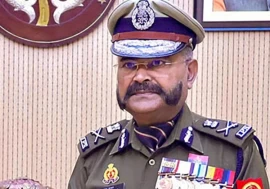
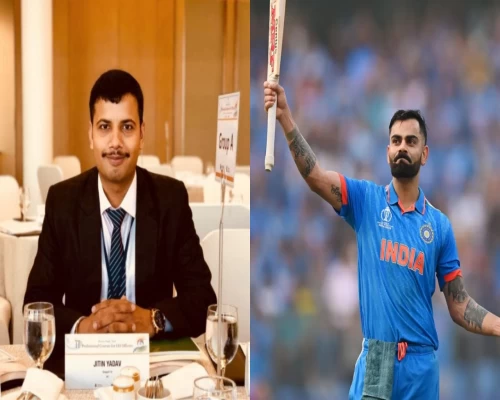
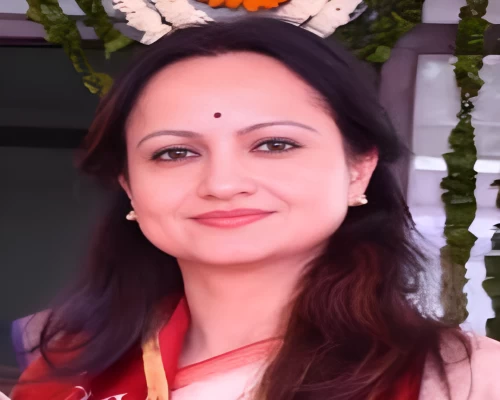
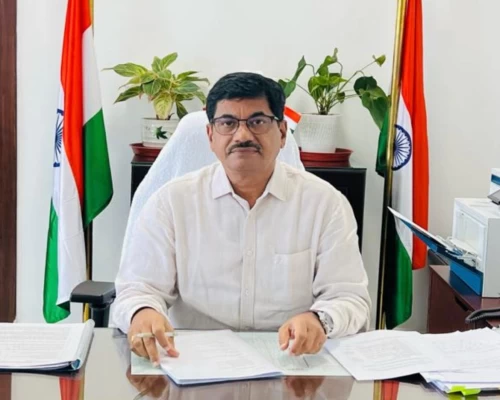
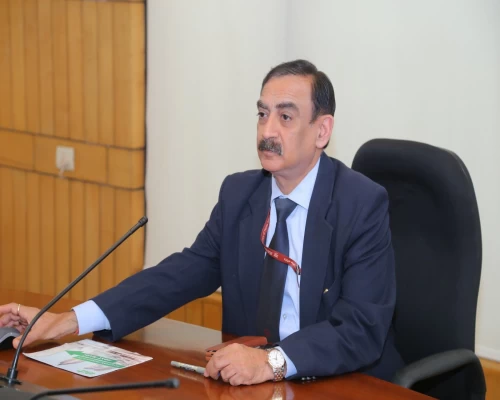
_500_x_400.webp)
